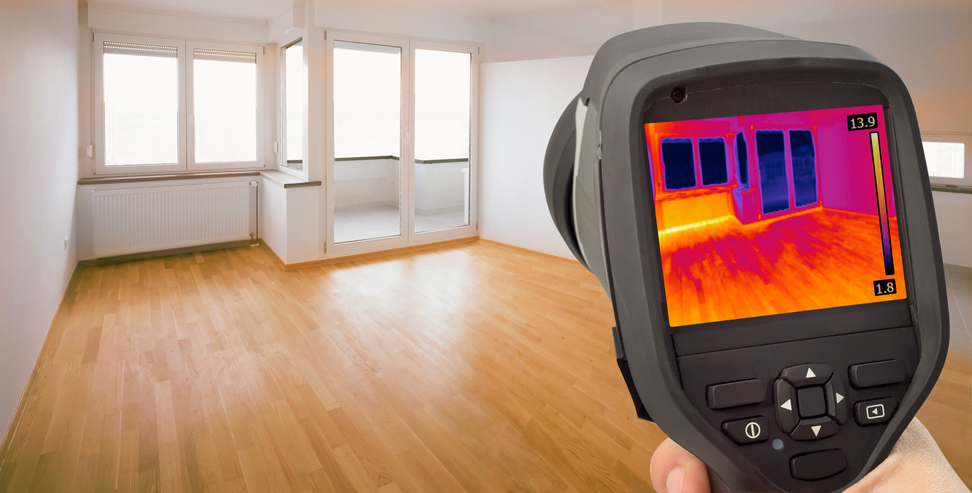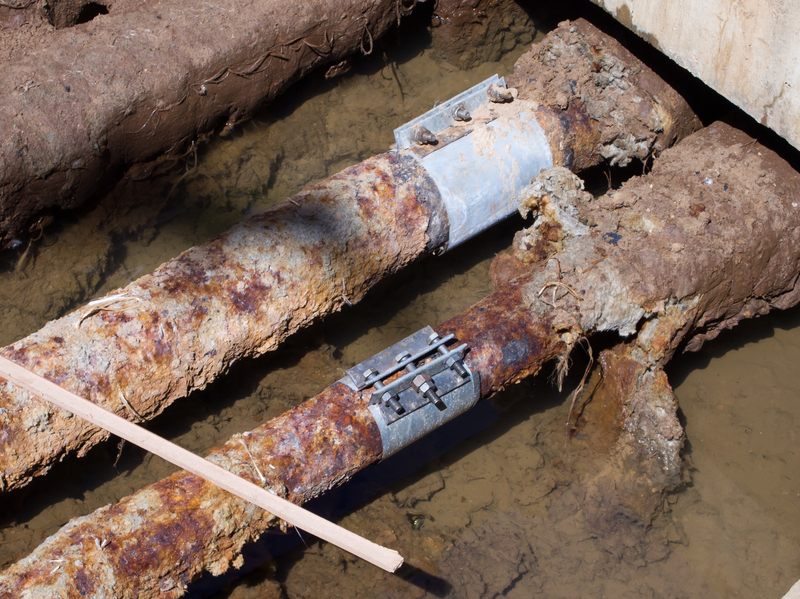Arkansas Materials 30 PDH Discount Package 1
Courses in this Package
Structures and Properties of Metals (T07-001)
Pre-Coating Surface Preparation (T02-003)
Lubricants and Hydraulic Fluids - Handling (T06-004)
Thermal Stress and Brittle Fracture of Material (T02-001)
Structural Insulated Panels (SIPs) Used in Residential Wall Systems (T04-007)
Corrosion Control for Aircraft (T09-001)

The online engineering PDH course addresses two aspects of metals. The first part of this course deals with the basic structures of metals and how those structures are affected by various processes. In addition, it contains information on the various imperfections and defects that the metal may sustain and how they affect the metal. The second part contains information on metal properties which are considered when selecting material for engineering design purposes. Each of these properties contains a discussion on how the property is affected and the metal's application.
This 7 PDH online course is applicable to structural and mechanical engineers, construction and design personnel, technical staff and facility operators who are interested in gaining a better understanding of the structures and properties of metals.
This PE continuing education course is intended to provide you with the following specific knowledge and skills:
- Understanding bonding
- Learning about common lattice types
- Understanding grain structure and boundary
- Learning about polymorphism and alloys
- Knowing the imperfection in metals
- Learning about stress and strain and Young's
- Modulus Understanding stress-strain relationship
- Understanding the physical properties of materials
- Learning about working metals and corrosion
- Understanding hydrogen embrittlement
In this professional engineering CEU course, you need to review Modules 1 and 2, "Structures and Property of Metals" of the Department of Energy Publication DOE-HDBK-1017/1-93, "Material Science".
Upon successful completion of the quiz, print your Certificate of Completion instantly. (Note: if you are paying by check or money order, you will be able to print it after we receive your payment.) For your convenience, we will also email it to you. Please note that you can log in to your account at any time to access and print your Certificate of Completion.

This online engineering PDH course describes surface preparation standards, common methods of surface preparation, and abrasive type and selection methods.
Surface preparation is the key factor in determining the success of a protective coating system. The equipment and techniques that can be used to achieve the desired surface cleanliness and roughness (profile) vary considerably. Traditional methods of surface preparation are now accompanied by new, innovative methods that have evolved mainly because of the issues surrounding the safe removal of lead-containing coatings from industrial structures. The ultimate objective of surface preparation is to create proper adhesion of a coating over an underlying substrate.
This 2 PDH online course is applicable to engineers, design and construction personnel, and other technical professionals who are interested in gaining a better understanding of surface preparation prior to coating applications.
This PE continuing education course is intended to provide you with the following specific knowledge and skills:
- Common methods of surface preparation
- Abrasive type and selection
- Surface preparation standards and specifications
In this professional engineering CEU course, you need to review Chapter 7 of the "Painting: New Construction and Maintenance" engineering manual, published by the United States Army of Corps of Engineers (USACE), Publication Number EM 1110-2-3400.
Upon successful completion of the quiz, print your Certificate of Completion instantly. (Note: if you are paying by check or money order, you will be able to print it after we receive your payment.) For your convenience, we will also email it to you. Please note that you can log in to your account at any time to access and print your Certificate of Completion.

This online engineering PDH course describes the basic principles of lubricant additives, filtration, monitoring and sampling, and oil handling procedures.
This course is intended to be a practical guide to lubrication with enough technical detail to allow personnel to recognize and easily discern differences in performance properties specified in manufacturers' product literature so that the proper lubricant for a particular application is selected. In addition, this course discusses the considerations required to adequately maintain the integrity of the lubricants and ensure their effective performance.
This 6 PDH online course is applicable to engineers, design and construction personnel, and other technical professionals who are interested in gaining a better understanding of lubricants.
This PE continuing education course is intended to provide you with the following specific knowledge and skills:
- Familiarizing with the basic principles, classifications, and functions of lubricant additives
- Understanding the different filtration and separation processes
- Learning about the process of oil monitoring, system sampling, and testing
- Familiarizing with the essentials of oil storage, handling, disposal and safety considerations
Upon successful completion of the quiz, print your Certificate of Completion instantly. (Note: if you are paying by check or money order, you will be able to print it after we receive your payment.) For your convenience, we will also email it to you. Please note that you can log in to your account at any time to access and print your Certificate of Completion.

This online engineering PDH course addresses the effects of thermal stress and thermal shock on a system. It explains how thermal stress and shock combined with pressure can cause major damage to components. This course also addresses ductile and brittle fracture. It describes how ductile and brittle fractures are affected by the minimum pressurization and temperature curves. It also explains the reason why heatup and cooldown rate limits are used when heating up or cooling down a system.
This 2 PDH online course is applicable to structural and mechanical engineers, construction and personnel, technical staff and facility operators who are interested in gaining a better understanding of thermal stress and brittle fracture of materials.
This PE continuing education course is intended to provide you with the following specific knowledge and skills:
- Thermal stress
- Pressurized thermal shock
- Brittle fracture mechanism
- Minimum pressurization-temperature curves
- Heatup and cooldown rate limits
In this professional engineering CEU course, you need to review Modules 3 and 4, "Thermal Stress and Brittle Fracture" of the Department of Energy Publication DOE-HDBK-1017/1-93, "Material Science".
Upon successful completion of the quiz, print your Certificate of Completion instantly. (Note: if you are paying by check or money order, you will be able to print it after we receive your payment.) For your convenience, we will also email it to you. Please note that you can log in to your account at any time to access and print your Certificate of Completion.

This online engineering PDH course provides prescriptive requirements for the use of structural insulated panels (SIPs) in wall systems in the construction of residential structures. These provisions include definitions, span tables, material requirements, and other related information appropriate for use by engineers, home builders, design professionals, and building code officials.
The Prescriptive Method for Structural Insulated Panels (SIPs) Used in Wall Systems in Residential Construction (Prescriptive Method) provides prescriptive requirements to facilitate the use of SIPs in wall systems for the construction of one- and two-family dwellings. By providing prescriptive provisions for the construction of typical homes with SIP systems, the need for engineering can be eliminated or reduced for most applications.
This 4 PDH online course is applicable to engineers, design professionals and construction personnel who are interested in gaining a better understanding of the design and installation considerations of structural insulated panels.
This PE continuing education course is intended to provide you with the following specific knowledge and skills:
- Familiarizing with the SIP materials, sizes and shapes
- Understanding the SIP foundation, wall and header requirements
- Understanding SIP connection details
- Understanding the utility requirements associated with SIP wall systems
- Understanding the thermal guidelines associated with SIP wall systems
Upon successful completion of the quiz, print your Certificate of Completion instantly. (Note: if you are paying by check or money order, you will be able to print it after we receive your payment.) For your convenience, we will also email it to you. Please note that you can log in to your account at any time to access and print your Certificate of Completion.

This online engineering PDH course provides information regarding the identification and treatment of corrosive attack on aircraft structures and engine materials.
Corrosion is the electrochemical deterioration of a metal because of its chemical reaction with a surrounding environment. While the aerospace industry is continuously developing new and better materials, progress is offset partly by a more aggressive operational environment and by the complexity of the corrosion phenomenon, which can take many different forms. The resistance of aircraft materials to corrosion can drastically change with only a small environmental change.
This 9 PDH online course is applicable to material, industrial and mechanical engineers, as well as aircraft operators, maintenance and repair personnel in addition to all others seeking a better understanding of the basics of corrosion in aircrafts.
This PE continuing education course is intended to provide you with the following specific knowledge and skills:
- Familiarizing with the factors that cause corrosion
- Understanding the effects of corrosion
- Knowing which areas are prone to corrosion and the methods of prevention
- Learning the requirements for inspecting aircraft
- Learning corrosion removal techniques
Upon successful completion of the quiz, print your Certificate of Completion instantly. (Note: if you are paying by check or money order, you will be able to print it after we receive your payment.) For your convenience, we will also email it to you. Please note that you can log in to your account at any time to access and print your Certificate of Completion.